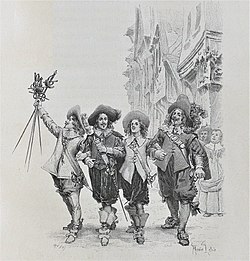First of all, if you want to know the difference between YA, MG, NA, Adult, and PB... you're in the wrong place. Those are categories and are discussed in another post. Once you figure that out, then come back here.
I was going to do a huge post on defining all genres, but that's proving to be impossible. So, this post will talk about what I call "super genres." Super genres are huge, broad, sweeping titles that each encompass a dozen or more smaller, more specific genres. You can click on each one to get a better idea of the sub-genres. Constructive discussion is welcome, please feel free to comment, if you feel you can do so nicely.
First, a diagram that I spent an inordinate amount of time on:
If you click on that, it should blow up pretty big for you to see. First, all the blue genres and sub-genres fall into a huge umbrella that we call "Speculative Fiction." Some people put horror in there, but I think that only qualifies as speculative sometimes. Now, we can move on to defining these so-called super-genres.
FANTASY - The single biggest component for you to consider is this: Is it possible? If not, is it being explained by magic? Then you have fantasy. Magic, the supernatural, paranormal, etc. Any amount of this and you are automatically in "fantasy" range. You might be "fantasy light," but fantasy nonetheless. Fantasy and Science-Fiction (and all their endless sub-genres) make up the giant bucket we call "Speculative Fiction."
SCIENCE FICTION - This is anything that is possible, if science were to make it so. Where fantasy relies on magic for its impossibility, science fiction relies on science. A simple example: In Harry Potter, they apparate, that is to say, they magically transport themselves from one place to another. In Star Trek, they travel via a transporter. In other words, a scientific development occurred that allowed them to transport people across great distances instantaneously. Same action as Harry Potter, but it's a scientific explanation instead of a magical one.
CONTEMPORARY - This includes a lot of smaller genres and on its own doesn't really describe anything other than the timeframe for the setting. Contemporary means exactly what it sounds like. It is set in a time relatively close to the one in which it was written. A huge majority of fiction is contemporary. In fact, the next five super-genres are overwhelmingly (though not exclusively) contemporary.
MYSTERY - Someone did something bad, and the protagonist needs to figure it out. Usually the protagonist has very little (if anything) personally invested in the case, they are just the person hired/approached to figure the whole problem out. The reader knows no more than the sleuth, and puzzles the problem out alongside them.
THRILLER - Closely related to mystery, but this time the antagonist is often known, and the suspense comes from how the protagonist is going to escape/figure things out in time.
ROMANCE - They meet. They fall in love. The title of this super-genre is pretty obvious, even if it can be broken down into dozens of sub-genres.
LITERARY - This one is hard for me to define. I think the simplest way to define literary fiction is by what it's not. It's not any of the other super-genres (collectively referred to as "genre fiction"). It overlaps with other genres A LOT. Think of literary fiction as the stuff you read in Lit classes: the classics, heavy emphasis on prose and literary devices, little focus on complicated plots or settings.
UPMARKET - This is where literary fiction becomes approved by the masses. It's still high-minded, focusing on prose and literary devices, but it has a mass-market appeal. Often times "upmarket" is difficult to define until after it's taken off. This is the only super-genre I won't touch on in a separate post. Think The Help, Water for Elephants, Life of Pi, Memoirs of a Geisha. Anything that sounds like it should have been labeled as "literary fiction" (and probably was) but became a total, complete, breakthrough, international bestseller.
HISTORICAL - These are often based on real people and real events, though not always. Historical romance, in particular, focuses on mostly fictitious characters, though again, not always. Covers any fiction set in a time that is not contemporary. Historical fiction is usually set far enough back for most readers to view the time period with nostalgia, if not farther back so as to be outside the readers' lifetime. For example, I am writing this post in 2013. Writing a book set in 1995 would likely not get a "historical" label (it'd be a pretty hard sell, I'd imagine), but setting one in 1965 would. Obviously, the only limit on this is the dawn of human existence, so there's a lot of ground to cover.
In a post on queries and pitches, Evan Gregory - an agent at Ethan Ellenberg Literary - said,
"Have you written a YA Horror Romance Women’s Fiction Thriller? No, you haven’t, because that’s impossible. In these post-modern times it’s also kind of impossible to write a story that doesn’t have a teensy bit of genre bleed. Genre can be difficult to pin down sometimes, and some books skirt the edges of several genres. For the sake of description, however, you ought to pick one genre and stick with it. That means doing research into other comparable works to yours, and trying to pin down which genre they are sold as. It also means identifying which readers you think would be most likely to read your book, and choosing the genre you think they might most identify with. It also means evaluating which elements of your story are most prevalent. If your book is 90% horror with a love story sub-plot, it is not a Romance/Horror (nor is there such a thing), it’s just Horror."
And that's the purpose of this post. Not to get you down or put you in a narrowly-defined box, but to help you pin down the genre that most represents your work so you can successfully pitch and sell your book.







No comments:
Post a Comment